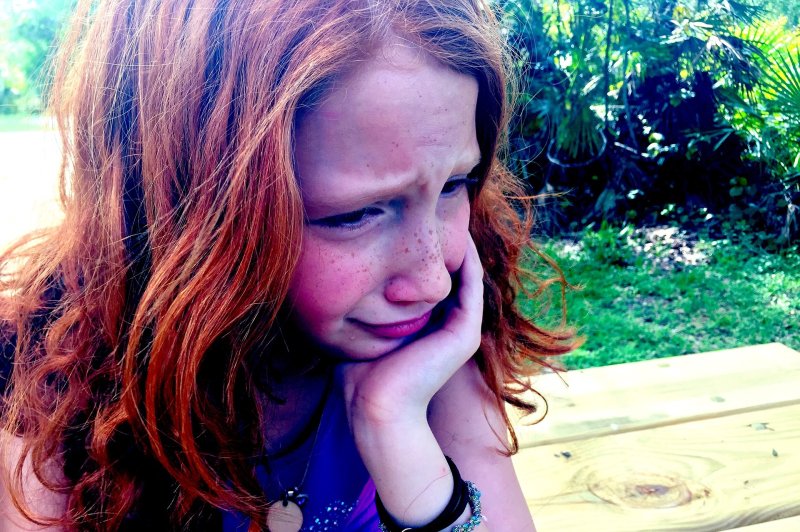Victims of child abuse or other forms of violence show increased signs of biological aging, a new study has found. Photo by
Mark Filter/Pixabay
Aug. 3 (UPI) -- Children who have been abused or exposed to violence while young age faster than those who haven't experienced these traumas, according to a study published Monday by the journal Psychological Bulletin.
Youngsters who experience these adversities are more likely to have signs of biological aging that include early onset puberty, cellular aging and changes in brain structure, the researchers found.
"Exposure to adversity in childhood is a powerful predictor of health outcomes later in life -- not only mental health outcomes like depression and anxiety, but also physical health outcomes like cardiovascular disease, diabetes and cancer," study co-author Katie McLaughlin said in a press release.
"Our study suggests that experiencing violence can make the body age more quickly at a biological level, which may help to explain that connection," said McLaughlin, associate professor of psychology at Harvard University.
Earlier studies provided mixed evidence on whether childhood adversity always is linked to accelerated aging, according to the researchers. However, this research looked at many different types of adversity -- abuse, neglect, poverty and more -- and at several different measures of biological aging, they said.
For their research, McLaughlin and her colleagues looked separately at two categories of adversity: threat-related adversity, such as abuse and violence, and deprivation-related adversity, such as physical or emotional neglect or poverty.
The researchers analyzed nearly 80 studies with more than 116,000 total participants.
Children who experienced threat-related trauma such as violence or abuse were more likely to enter puberty early and also showed signs of accelerated aging on a cellular level, including shortened telomeres, the researchers said.
Telomeres are the protective caps at the ends of strands of DNA that wear down as humans age, according to the researchers.
Children who experienced poverty or neglect, however, did not show either of those signs of early aging, they said.
McLaughlin and her colleagues also reviewed data from 25 studies with more than 3,253 participants that examined how early-life adversity affects brain development.
Adversity was associated with reduced cortical thickness -- considered a sign of aging because the cortex thins as people age, the researchers said. But different types of adversity were associated with cortical thinning in different parts of the brain, they said.
For example, trauma and violence were associated with thinning in the ventromedial prefrontal cortex, which is involved in social and emotional processing.
Deprivation, however, was more often associated with thinning in the frontoparietal, default mode and visual networks, which are involved in sensory and cognitive processing, the researchers said.
The findings underscore the need for early interventions to help avoid these consequences, which could have long-term health complications, they said.
Numerous evidence-based treatments that can improve mental health in children who have experienced trauma, according to McLaughlin.
"The fact that we see such consistent evidence for faster aging at such a young age suggests that the biological mechanisms that contribute to health disparities are set in motion very early in life," she said.
"This means that efforts to prevent these health disparities must also begin during childhood."















